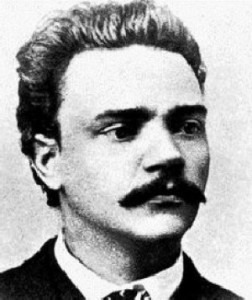 “Minors of the Majors” invites you to discover compositions by the great classical composers that for one reason or another have not reached the musical mainstream. Please enjoy, and keep listening!
“Minors of the Majors” invites you to discover compositions by the great classical composers that for one reason or another have not reached the musical mainstream. Please enjoy, and keep listening!
Antonín Dvořák’s compositions for solo piano have been overshadowed by his great symphonies and other orchestral works, the operas and oratorios, the chamber music and even his four-hand piano pieces. Dvořák never claimed to be a pianist of more than average competence, as his early training and performing experiences centered on string instruments. However, his very first composition was a Polka for piano written during his early teens, and perhaps his best-known work, the Humoresque was originally also written for solo piano.
Antonín Dvořák: Silhouettes, Op. 8
Clearly, Dvořák did not turn to the piano for his best and most innovative work, but his piano miniatures nevertheless represent high levels of inspiration, craftsmanship and personality. Although Dvořák put the finishing touches on his piano cycle Silhouettes Op. 8 only in 1879, a number of its musical themes date back to 1865. In that year the composer wrote his song-cycle Cypresses as an expression of his unrequited love for Josefina Čermáková, an actress at the Provisional Theatre. As is well known, Dvořák eventually married her sister Anna in 1873! The main theme of the first Silhouette, however, originates from Dvořák’s 1st Symphony. That theme returns in the concluding twelfth Silhouette, and forms a circle that reflects an emotionally tumultuous phase of the composer’s life. Other themes are taken from the scherzo of his 2nd Symphony and combined in a peculiar mixture of intimate and passionate pieces. Published by Hofmeister in Leipzig, the low opus number does not correspond to the actual number at that point in Dvořák’s career. Poetic, evocative, and tender, this set was aimed at the amateur pianist, and Theodor Kirchner later arranged the Silhouetts for piano four-hands.
You May Also Like
- Minors of the Majors
Edvard Grieg: 25 Norwegian Folk Songs and Dances, Op. 17 Throughout his illustrious career as a pianist and composer, Edvard Grieg extensively drew inspiration from the musical sources of his native Norway. - Minors of the Majors
Johannes Brahms: Deutsche Volkslieder When Johannes Brahms published his folk song adaptations in seven booklets in 1894 he said, “It is the first time that I regard with tenderness that, which I have produced.” - Minors of the Majors
Manuel de Falla: Allegro de Concierto Manuel de Falla’s small oeuvre includes symphonic, instrumental, vocal and theatrical music. - Minors of the Majors
Richard Strauss: Macbeth, Op. 23 Richard Strauss’s monumental tone poems are the central musical expressions of the Austro-German tradition at the turn of the century.
More Anecdotes
- Bach Babies in Music
Regina Susanna Bach (1742-1809) Learn about Bach's youngest surviving child - Bach Babies in Music
Johanna Carolina Bach (1737-81) Discover how family and crisis intersected in Bach's world - Bach Babies in Music
Johann Christian Bach (1735-1782) From Soho to the royal court: Johann Christian Bach's London success story - A Tour of Boston, 1924
Vernon Duke’s Homage to Boston Listen to pianist Scott Dunn bring this musical postcard to life
